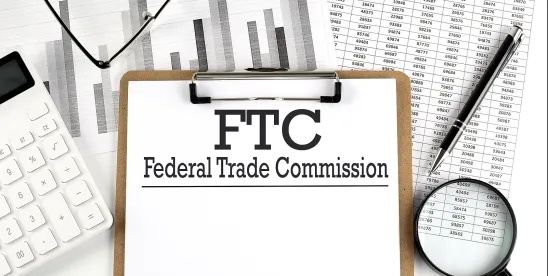On April 23, 2024, the Federal Trade Commission (FTC) issued a Final Rule banning non-compete clauses between workers and employers, deeming them “an unfair method of competition” in violation of Section 5 of the FTC Act (“Final Rule”). The Final Rule, which was scheduled to take effect on Sept. 4, 2024 (“Effective Date”), would have rendered most existing non-compete clauses unenforceable and prohibited non-compete agreements on a going-forward basis, subject to a few narrow exceptions. Since its issuance, the Final Rule has faced several challenges[1], including Ryan LLC v. FTC[2] which was pending before Judge Ada Brown in the Northern District of Texas. On Aug. 20, 2024, Judge Brown issued a nationwide injunction barring the implementation of the Final Rule (the “Texas Decision”). As a result, the Final Rule will not go into effect, as planned, on Sept. 4.
Judge Brown had issued a preliminary injunction on July 3, enjoining the FTC from enforcing the Final Rule, but only as to the parties in the case, and declined to issue a nationwide injunction at that stage. Shortly after the preliminary injunction issued in Ryan, the Eastern District of Pennsylvania took an opposite approach in ATS Tree Services, LLC v. FTC, and declined to issue a preliminary injunction on implementing the Final Rule. In ATS, the Pennsylvania court rejected the notion that the FTC acted outside its authority. On Aug. 15, a judge in the Middle District of Florida issued a preliminary injunction as to the parties in Properties of the Villages, Inc. v. FTC [3], but did so on a different basis than the Ryan court. Specifically, the Florida court found that the FTC does have substantive rulemaking authority under Section 6(g) of the Federal Trade Commission Act (“FTCA”) but the Final Rule was unauthorized under the “major questions doctrine.” The inconsistency in rulings and the hesitancy to issue an injunction reaching beyond the parties before the court at the preliminary injunction stage created great uncertainty as to the fate of the Final Rule, as the effective date loomed nearer.
The Aug. 20 Texas Decision has now erased that uncertainty. The Texas court ruled not only that the FTC exceeded its statutory rulemaking authority in promulgating the Final Rule, but also that the Final Rule failed to meet the “arbitrary and capricious” standard.
In making this finding, the Court determined that the rulemaking authority regarding unfair methods of competition under Section 6(g) of the FTCA does not extend to creation of substantive rules, but is instead limited to “housekeeping” or procedural rulemaking. Accordingly, the Court found that Section 6(g) does not give the FTC substantive rulemaking authority.
In finding the Final Rule was arbitrary and capricious, the Court held the one-size-fits-all approach was “unreasonably overbroad without a reasonable explanation,” and noted that “the [Final Rule] is based on inconsistent and flawed empirical evidence, fails to consider the positive benefits of non-compete agreements, and disregards the substantial body of evidence supporting these agreements.” The Court took issue with the FTC’s decision to impose such a sweeping blanket ban and its failure to sufficiently address alternatives, nor was the Court swayed by the FTC’s argument that case-by-case adjudication, rather than a blanket ban, would be highly inconvenient.
Following the ruling, the FTC announced it is considering an appeal of the decision. Additionally, the FTC spokesperson highlighted that the “decision does not prevent the FTC from addressing non-competes through case-by-case enforcement actions.” Indeed, the Texas Court noted that the FTC is vested with the power to prevent the use of “unfair methods of competition.” The dispute over implementation and enforceability of the Final Rule is likely to continue in the appellate courts and possibly even trigger Supreme Court intervention. The future of non-competes and the fate of the Final Rule remain uncertain, but for the time being, the FTC is prohibited from enforcing the Final Rule, and it will not go into effect on Sept. 4.
It should be noted that the Texas Decision causing the demise of the Final Rule has no impact on state laws and the ability to regulate non-competes at the state level. As previously reported Pennsylvania and other states have implemented laws banning or restricting non-compete clauses. The Pennsylvania Fair Contracting for Health Care Practitioners Act (the “PA Act”), scheduled to go into effect on Jan. 1, 2025 (the “Effective Date”), is not impacted by the decision blocking the Final Rule. The PA Act prohibits the enforcement of non-compete covenants entered into after the Effective Date between certain health care practitioners (licensed physicians, certified registered nurse anesthetists, certified registered nurse practitioners, and physician assistants) and their employers, subject to certain limited exceptions.[4] Massachusetts passed similar legislation in 2018, restricting non-competes for doctors, nurses, psychologists, social workers, broadcast industry workers, and lawyers. Five states have fully banned non-compete clauses: California, Oklahoma, North Dakota, and Minnesota. The demise of the Final Rule may well prompt more states to implement restrictions on a state level.
[1] See Ryan LLC v. FTC, USDC ND Tex. No. 3:24-cv-00986; ATS Tree Services, LLC v. Federal Trade Commission, USDC ED Penn. No. 2:24-cv-01743; Properties of the Villages Inc. v. Federal Trade Commission, USDC MD Fl. No. 5:24-cv-00316
[2] Ryan v. FTC, USDC ND Tex. No. 3:24-cv-00986
[3] Properties of the Villages, Inc. v. FTC; It should be noted that the plaintiff in this case did not seek a nationwide injunction.
[4] Employers may enforce noncompete covenants entered into after the Effective Date if the duration of the noncompete is no more than 1 year and the health care practitioners voluntarily terminated employment and were not dismissed by the employer.




 />i
/>i

